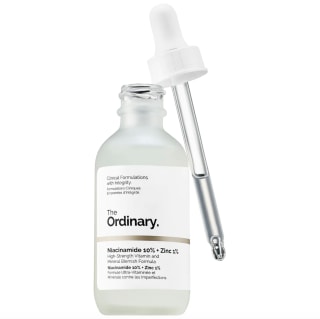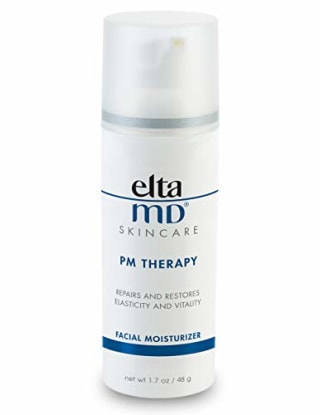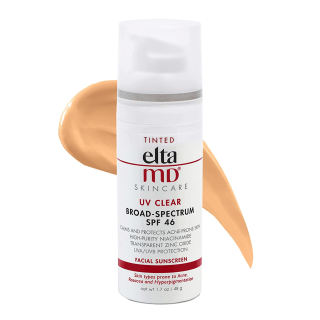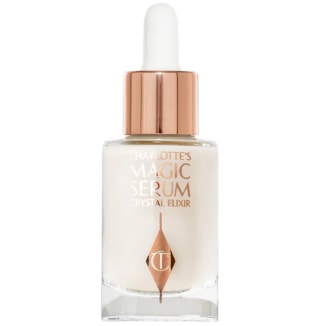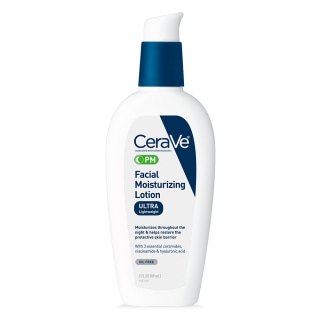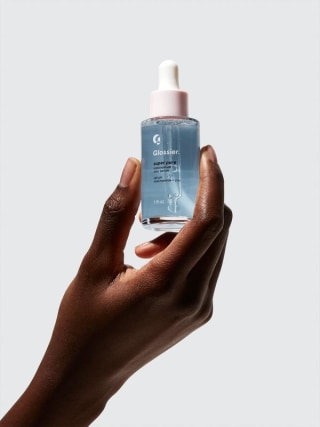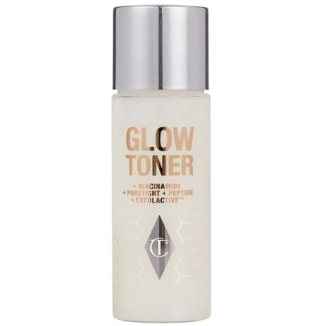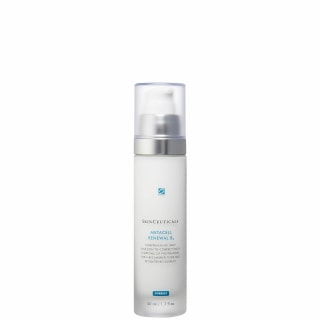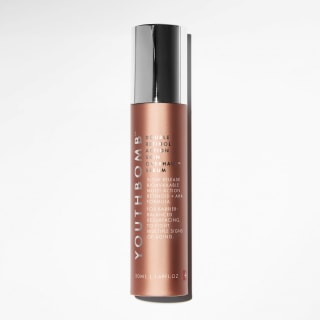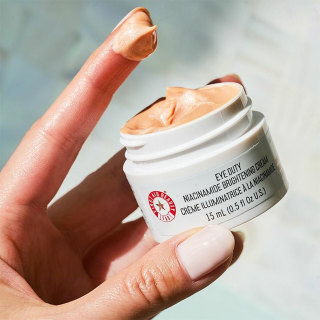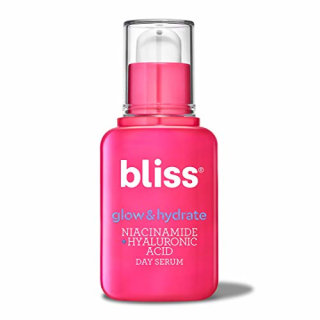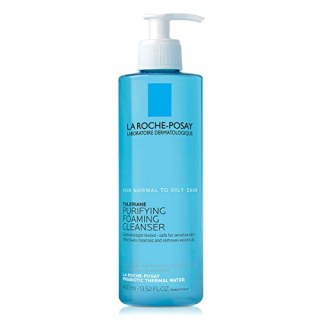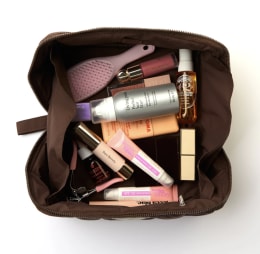Editor's note: A previous version of this article attributed quotes to Dr. Lian Mack, which has since been amended to note the correct source, Dr. Anetta Reszko.
Skin care is always evolving, and it seems as though there is always a new superstar ingredient that boasts more benefits than the next. Between face washes, oils, moisturizers and everything else on the market, finding these skin care saviors never seems to be an easy feat.
In fact, most of these ingredients aren't anything new — they've likely always been buried in a long list of ingredients but are just now starting to have their moment. The latest ingredient that is finding itself back on beauty radars seems to be niacinamide — and it can help your skin in a number of ways.
Benefits | How to use niacinamide | Expert picks | More options | FAQs | Meet the experts
Why do I need niacinamide in my skin care routine?
The ingredient can be used to treat a wide range of skin issues, including acne, rosacea, hyperpigmentation and wrinkles. Additionally, it provides numerous benefits to the skin such as helping to increase collagen production, reducing moisture loss, improving fine lines and wrinkles, protecting the skin barrier and minimizing the appearance of pores and dark spots caused by sun exposure.
Niacinamide also supports the function of the skin barrier, which is particularly helpful during the warmer months when we spend more time outdoors. It does this by helping to produce ceramides, which is essential to retaining moisture in the skin, according to board-certified dermatologist Dr. Robyn Gmyrek.
"When the skin barrier function is intact and healthy, it is more protected against environmental toxins and infectious agents, holds moisture and is much less likely to get irritated or inflamed," Gmyrek says.
According to New York-based dermatologist Dr. Melissa Kanchanapoomi Levin, niacinamide helps to treat hyperpigmentation by inhibiting pigment-producing enzymes. Additionally, it can improve the overall texture of the skin without irritating it thanks to its anti-inflammatory properties.
How do you use niacinamide?
Dr. Reshmi Kapoor, a board-certified dermatologist and founder of Brooklyn Dermatology, recommends choosing a vehicle to incorporate niacinamide into your skin care routine based on what you are trying to accomplish. “Depending on the primary result you want from niacinamide — whether it is moisturizing the skin or brightening skin tone — look for products that formulate it in a way that makes sense,” she says.
Once you've chosen the formulation that makes the most sense for you, board-certified dermatologist Dr. Anetta Reszko recommends layering products from thinnest to thickest for the best results.
“If you are using a niacinamide serum, it is most efficient to apply it before any oil-based serums," she explains. "Niacinamide is hydrophilic, meaning it mixes well with water. Applying oils/oil-based products beforehand could diminish the benefits of niacinamide as it will not soak into your skin as easily."
New York City-based dermatologist Dr. Hadley King says niacinamide can be applied in the morning or evening. “I like to use it at night with a retinoid because it can help combat dryness and irritation that retinoids can cause,” she adds.
While niacinamide is a versatile ingredient, it's important to take note of the percentage present in any formula you choose.
"It comes in 2% and 5% — make sure to start at a lower percentage if you have sensitive skin," New Jersey-based dermatologist Dr. Shari Sperling advises.
Dr. Robin Schaffran, chief dermatologist at BalmLabs, tells us that it is best to apply it all over the face rather than opting to use it solely on target areas.
Expert-approved products with niacinamide
The Ordinary Niacinamide 10% + Zinc 1% Serum
Once you've acclimated to lower percentages and are ready to try something stronger, this high-strength serum is one that Gmyrek recommends and can be used on all skin types. The potent amount of niacinamide helps to reduce the appearance of blemishes and is balanced by a small percentage of zinc to maintain sebum (oil) activity.
EltaMD PM Therapy Facial Moisturizer
If you prefer to let your skin do the work while you rest, this nightly moisturizer might be worth considering. Gmyrek says this is a great option since niacinamide is the third ingredient in the formula. Combined with other ingredients, the moisturizer also helps target aging skin, hyperpigmentation and works to protect the skin from free radical damage, according to the brand.
EltaMD UV Clear Tinted Broad-Spectrum SPF 46
Gmyrek recommends this tinted sunscreen that offers the brightening properties of niacinamide while providing lightweight coverage that can conceal discoloration. Other ingredients such as hyaluronic acid and lactic acid to keep skin healthy and hydrated, while also providing protection from harmful UV rays.
Charlotte Tilbury Charlotte's Magic Serum Crystal Elixir
If you’re looking for a serum to add to your routine, King recommends this elixir that’s packed with humectants like glycerin, lactic acid, hyaluronic acid and polyglutamic acid alongside 5% niacinamide. “These ingredients all help to create an immediate plumping effect that makes the skin look younger and smoother,” she notes.
CeraVe PM Facial Moisturizing Lotion
If you're looking to take in the overall benefits of niacinamide, Gmyrek recommends this moisturizing lotion from CeraVe. It is not only formulated with niacinamide, but also includes hyaluronic acid to keep skin hydrated and protected.
Glossier Super Pure
Kapoor recommends this dermatologist-tested serum formulated with 5% niacinamide and a vitamin-and-mineral duo of zinc PCA. Aside from balancing the skin, it's also designed to help reduce the appearance of pores for a smoother complexion. According to the brand, it’s suitable for sensitive skin and it follows the low percentage recommendation from Sperling.
Charlotte Tilbury Glow Toner
This acid-free toner is formulated with prickly pear extract and peptides alongside niacinamide to provide various benefits. “Glycerin and sodium hyaluronate help to hydrate, and niacinamide improves tone and texture,” King adds.
SkinCeuticals MetaCell Renewal B3
Kapoor recommends this lightweight moisturizer from SkinCeuticals that is formulated with 5% niacinamide to improve the appearance of wrinkles and other signs of aging. Plus, glycerin and a tri-peptide concentrate will provide your skin with some necessary hydration during especially dry seasons.
Beauty Pie Youthbomb Double-Retinol Action Skin Overhaul Serum
Formulated with both a retinol and retinoid, this serum comes recommended by King and works to stimulate collagen production and increase cell turnover, according to the brand. It also contains lactic acid, hyaluronic acid and ceramides.
More options to try
First Aid Beauty Eye Duty Niacinamide Brightening Cream
Suitable for normal to dry skin, this eye cream uses niacinamide as the main ingredient to visibly reduce the appearance of under-eye circles. It also works to address skin care concerns such as fine lines, wrinkles and puffiness.
Bliss Glow and Hydrate Serum
The vegan formula of this serum combines the power of superstar ingredients hyaluronic acid and niacinamide to restore and replenish the skin without compromising moisture. It can be applied in the mornings to clean skin and then followed with a moisturizer to lock in the hydrating effects.
La Roche-Posay Toleriane Purifying Foaming Face Wash
One Shop TODAY editor loves this foaming face wash for sensitive skin. The formula is oil- and sulfate-free and gently cleanses the skin to remove dirt and impurities. In this face wash, niacinamide acts as a soothing agent to calm the skin.
Frequently asked questions
What exactly is niacinamide?
"Niacinamide, also called nicotinamide, is a form of vitamin B3," Schaffran tells us. "It functions predominantly as an antioxidant, meaning it counteracts oxidative stress induced by environmental damage, which can be caused by things like ultraviolet (UV) light."
While niacinamide is commonly found in skin care products, it is also a vitamin that we consume from foods such as eggs, fortified cereals, green veggies, beans, fish and milk, according to Gmyrek.
Gmyrek notes that while you should be looking to incorporate this form of vitamin B3 into your diet, it may not always be absorbed by the intestines and fully delivered to the skin.
"The only way to ensure that you are getting enough to maximally benefit the skin is to apply it directly in the form of skin care," she says.
Can you use too much niacinamide?
As with any product, using too much can be more hurtful than helpful. Kapoor generally recommends looking for a product with 1% to 5% niacinamide as higher percentage products may be too irritating.
“Overusing niacinamide or using high percentage products can cause irritation and breakouts,” she adds.
Additionally, if you’re just starting to add niacinamide into your skin care routine, you’ll want to start slow.
“Start using it a couple times a week and gradually work your way up to every day to make sure your skin type can tolerate it well,” Reszko recommends.
Does niacinamide mix well with other ingredients?
Even if you already use other popular ingredients in your everyday skin care routine, incorporating a niaciniamide-based formula into your regimen won't interfere with your results. Better yet, you can feel comfortable using the ingredient year-round.
"Niacinamide is uniquely compatible with all products including retinol, peptides, HA (hyaluronic acid), BHAs and AHAs, vitamin C and other antioxidants," Rhea Grous, aesthetics director and founder of La Suite Skincare at Union Square Laser Dermatology, says. "It's a one-size-fits-all for the entire face, neck and eyes, too! This is an ingredient that can be incorporated at any time, during any and every season."
What form of niacinamide is best?
There isn't an overall "best" form of niacinamide; it'll depend on the skin care concern you're trying to target.
“If treating acne, hyperpigmentation or fine lines, a serum-based product works best so it can be applied easily to the skin and penetrate to produce effects,” Kapoor says. “If treating dry or eczema(-prone) skin, applying a moisturizer with niacinamide is beneficial as the ingredients can help restore the skin barrier.”
Meet the experts
- Dr. Robyn Gmyrek, MD, is a board-certified dermatologist at Union Derm in New York City. She was formerly the director of cosmetic dermatology at Columbia University.
- Dr. Melissa Kanchanapoomi Levin, MD, FAAD, is a board-certified dermatologist and the founder of Entière Dermatology, a medical and cosmetic dermatology practice, in New York City.
- Dr. Reshmi Kapoor, MD, FAAD, is a medical and cosmetic board-certified dermatologist. She is also the owner and founder of Brooklyn Dermatology.
- Dr. Anetta Reszko, MD, Ph.D., is a board-certified dermatologist and dermatologic surgeon in New York. She is also a clinical assistant professor of dermatology at Weill Cornell Medical College.
- Dr. Hadley King, MD, FAAD, is a board-certified dermatologist who specializes in medical and cosmetic dermatology. She practices out of her namesake clinic in New York City.
- Dr. Robin Schaffran, MD, is a board-certified dermatologist based in Beverly Hills. She is also the chief dermatologist at BalmLabs.
- Rhea Grous is the founder and director of aesthetics at La Suite Skincare in New York City.
The Flat Lay Co. Flat Lay Makeup Bag
The Flat Lay Co. Flat Lay Makeup Bag


